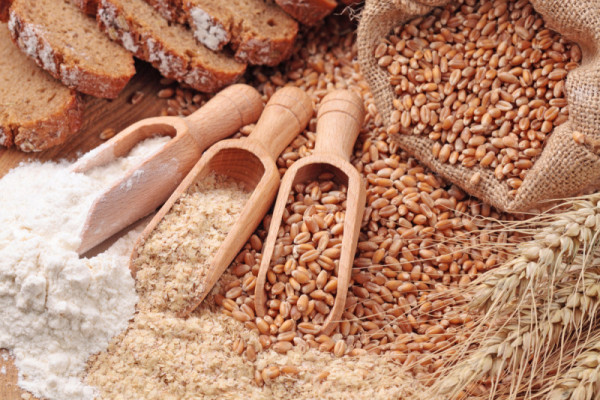By Layne Lieberman, RD, Culinary Nutritionist and author of “Beyond The Mediterranean Diet: European Secrets Of The Super-Healthy”
A small percentage of the population that greatly benefit from following a gluten-free: These are the estimated 1 to 2 percent of people who have been diagnosed with celiac disease and the 0.2 to 0.4 percent who suffers from wheat allergy.
So what about the rest of us, the 98% of the population that hasn’t been diagnosed with celiac disease or a wheat allergy?
Some of the biggest diet buzzwords right now are gluten-intolerance or gluten-sensitivity but there’s no test to determine if an individual actually has this. The truth is, the gluten-free movement has become a multi-billion dollar industry. Despite what’s written in fear-mongering books like “Grain Brain” and “Wheat Belly”, for most of the population there is no reason to go 100% gluten-free. (I do, however, strongly support eliminating processed foods like white bread, cookies, chips, pretzels, and cakes.)
Here’s why most of us should NOT be on a gluten-free diet:
- Gluten-free diets recommend substituting rice for wheat. This may not be a good idea in the long-term. Rice absorbs arsenic (and cadmium) from the ground. Small quantities in the diet are of no concern. But when rice (or rice flour) is a staple, as recommended in some gluten-free diets, it can be troublesome and may even result in poisoning.
- Restaurant and supermarket gluten-free offerings can be highly processed and packed with calories, sugar, salt and fat. One half of an Uno Chicago Grill Gluten-Free Pepperoni Pizza has 500 calories, 21 grams of fat, 1040 milligrams of sodium and 6 grams of sugar. Yikes!
- Gluten-free products are often void of nutrients and fiber. Most lack iron, thiamin, riboflavin, niacin and folate found in most enriched wheat and whole-grain products. For example, Betty Crocker’s all-purpose rice flour blend has no fiber and no nutrition.
- Wheat and other grains have proven to be excellent forms of sustenance for thousands of years. Whole-grain complex carbohydrates are the most efficient fuel for the body and provide a wide range of vitamins, minerals, trace minerals, fiber, and protein. Grains like amaranth, buckwheat, chia, millet, and quinoa were an important food source for many civilizations. (Learn more about this in my book, “Beyond The Mediterranean Diet: European Secrets Of The Super-Healthy”.)
- There is no scientific proof that gluten-free diets result in weight loss or improve health, unless you are part of the small percentage of the population that has celiac disease, wheat allergy, or real gluten-sensitivity. Removing any food group can result in a lower caloric intake, and therefore weight loss, but there are better and more balanced ways to cut back on calories.
Also Read:
How to Cook Whole Grains on the Stove

